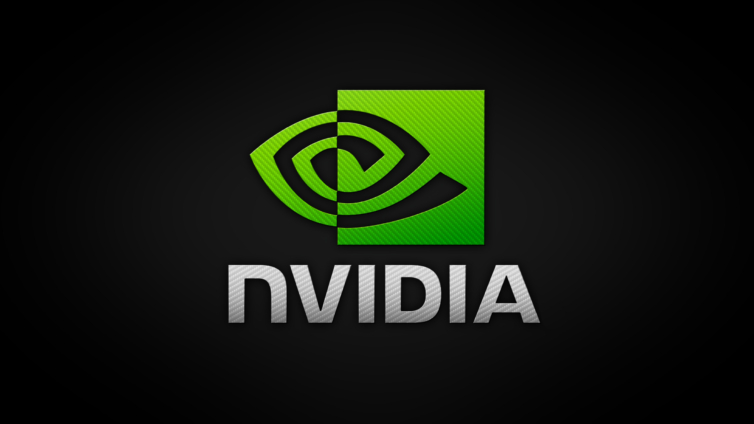Technology multinational Nvidia has ascended to the position of the world's most valuable company, surpassing tech giant Microsoft. This shift is driven by Nvidia's pivotal role in the rapidly growing Artificial Intelligence (AI) sector, thanks to its high-end processors.
According to data from S&P Global, the company surpassed two renowned tech companies on Tuesday, 18th June 2024 to become the top-ranked public company in terms of value worldwide. The company's remarkable growth can be attributed to the flourishing field of generative artificial intelligence and the increasing need for its graphics processing units (GPUs), which have played a pivotal role in the development of AI systems.
The company's rise is among the fastest in market history. Just two years ago, the company’s market valuation was a little over $400 billion. Now, within a year, it has skyrocketed from $1 trillion to over $3 trillion.
On Tuesday, Nvidia’s share price rose by 3.6 percent, lifting its value to $3.34 trillion. Meanwhile, Microsoft and Apple both experienced declines, ending the day trailing the Silicon Valley chipmaker.
Nvidia’s ascent underscores the transformative impact of artificial intelligence on the world’s largest companies. The rise of AI first elevated Microsoft to the top market capitalization in January, dethroning Apple, before pushing Nvidia to take the crown. Last week, Apple announced its entry into the AI space, planning to incorporate the technology into its products, including the iPhone, this fall.
Years before other major chip companies, Nvidia’s CEO, Jensen Huang, foresaw the importance of GPUs in building AI and aligned his company’s strategy accordingly. This foresight is now paying off, with the company controlling over 80 percent of the market for AI system chips. Major customers regularly compete for its chips to power their vast data centers, while also developing their own AI chips to reduce reliance on Nvidia.

“No one else fully saw or appreciated this,” said Daniel Newman, CEO of the Futurum Group, a tech research firm. “They saw the trend, built for the trend, and enabled the market. They can effectively charge whatever they want.”
Nvidia’s rapid ascent has made Huang, aged 61, a celebrity in the tech world. After a recent conference in Taiwan, attendees eagerly sought his autograph, with one woman even asking him to sign her chest.
The company’s rise is reminiscent of dot-com era titans like Cisco and Juniper Networks, which built the infrastructure for the internet. Cisco’s shares increased more than a thousand-fold from its initial public offering in 1990 to 2000, when it briefly became the world’s most valuable company.
The speed at which Nvidia’s value has grown is remarkable. Apple took nearly five years to climb from $1 trillion to $3 trillion, and Microsoft took a similar amount of time. Nvidia’s investors are banking more on its potential than its current profits. While Microsoft and Apple each generated over $21 billion in profit during the three months ending in March, the company generated $14.88 billion in its most recent quarter, a 600 percent increase from the previous year.
“The numbers have gotten so big so quickly that people worry: Is this sustainable?” said Stacy Rasgon, an analyst with Bernstein Research. “If the return on AI turns out not to be there, then the whole thing comes crumbling down.”
Since its inception, only 12 companies have led the S&P 500 by market valuation, with Nvidia joining the ranks of AT&T, Apple, Cisco, DuPont, Exxon Mobil, General Electric, General Motors, IBM, Microsoft, Philip Morris, and Walmart, according to S&P Dow Jones Indices.
Nvidia’s success is largely due to consistently exceeding Wall Street expectations. In its last quarter, sales tripled from a year earlier to $26 billion, and the company projected it would double sales in the current quarter.
Nvidia sells everything from chips and the software needed to build AI systems with those chips to supercomputers. These machines, packed with Nvidia’s GPUs, sell for $250,000 or more, with new models potentially exceeding $1 million.
“Even though the cost of the system is going up, the performance per dollar is getting better with every generation, and that’s how they’re able to keep customers buying,” Rasgon said.
Wall Street is closely monitoring for signs of a slowdown. Companies like Microsoft, Meta, Google, and Amazon have all developed their own AI chips, while traditional chip rivals such as Advanced Micro Devices and Intel are attempting to break into Nvidia’s market with their own AI processors.
However, Huang believes it will take time for competitors to catch up. Nvidia has a decade head start and a large community of AI programmers who prefer its technology.
“We are fundamentally changing how computing works and what computers can do,” Jensen Huang said in a conference call with analysts in May. “The next industrial revolution has begun.”
Latest Stories
-
GHS takes measures to check Mpox outbreak
31 minutes -
Five dead after tornado tears through St Louis
35 minutes -
Real Madrid confirm Dean Huijsen signing from Bournemouth
51 minutes -
Delegates walk out of FIFA congress after Infantino arrives late from Trump trip
1 hour -
Mahama must seek legislative backing for Code of Conduct – Ahiagbah
1 hour -
John-Paul Adjadeh: The visionary behind Ghana’s Premier alumni games
2 hours -
Israel launches major offensive to ‘seize and control’ areas of Gaza
2 hours -
32 youth receive business starter packs from Ghana Grows
2 hours -
NSA Boss visits reptile-breeding Azumah Nelson Youth Centre
2 hours -
It is unfair to blame gov’t for power crisis – Prof Sharif Khalid
2 hours -
Unpredictable cedi appreciation could hurt businesses – Kenneth Thompson warns
2 hours -
Cedi appreciation: We must build reserves that allow long-term predictability – Prof Bopkin
2 hours -
Nine reported killed in Russian strike on civilian bus in Ukraine
3 hours -
Inaction is the main cause of challenge in power sector – Ing. Amissah-Arthur
3 hours -
Ghana’s marine economy: A strategic choice between fishing and coastal tourism
3 hours

